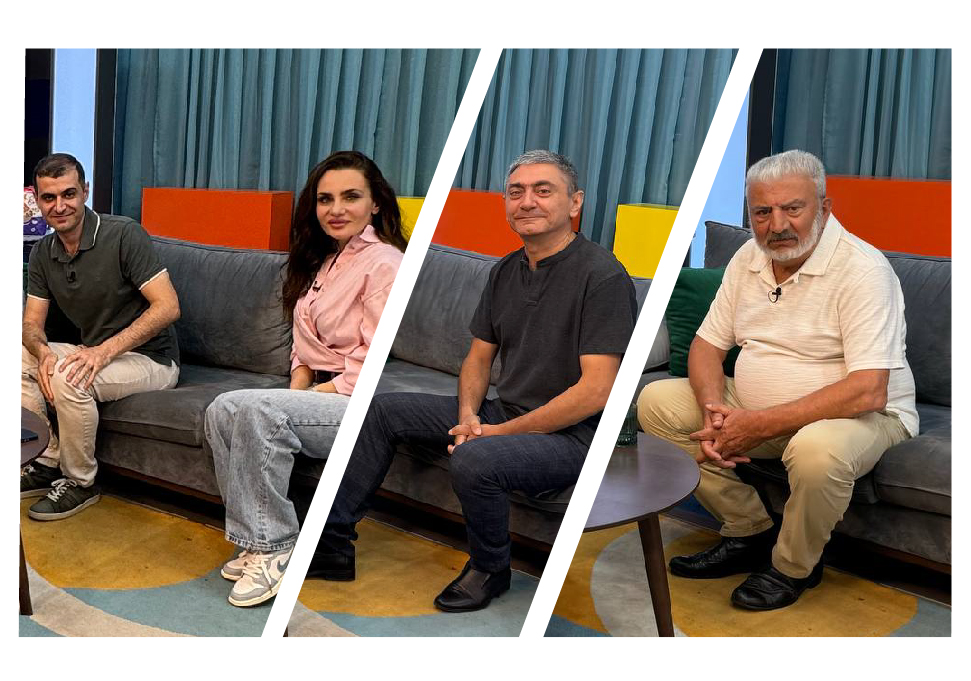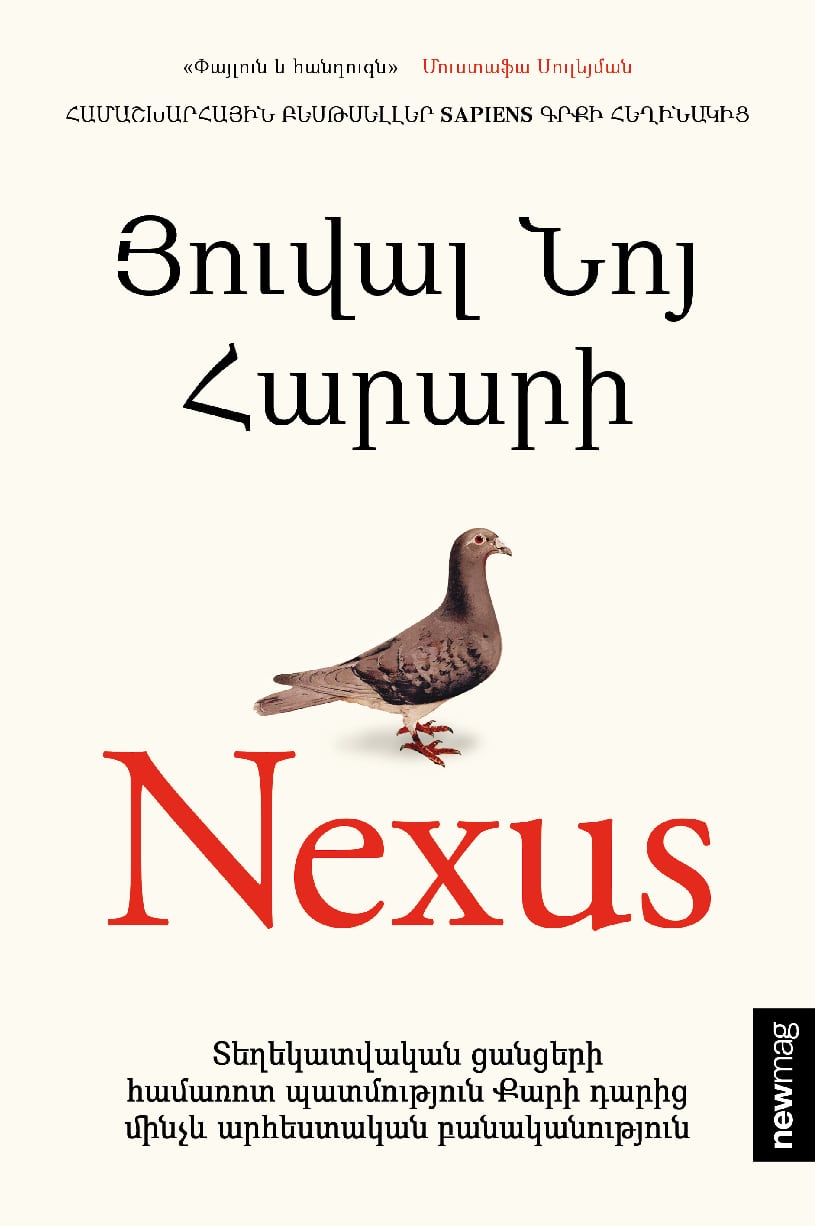The global presentation of "Nexus, A Brief History of Information Networks from the Stone Age to AI" (video)
09/10/2024

On September 10, Yuval Noah Harari’s new book, "Nexus", was released worldwide. Newmag also joined the global premiere.
Armenia is the only country in the CIS where the book is
published simultaneously with the rest of the world. Gnel Nalbandian, the
editor of "Nexus",
notes that Harari has written an exceptional work, and Armenian readers will
engage with this book on the achievements of historical, political,
sociological, and philosophical thought alongside readers around the world.
"We are all on social networks, we are captives of our
phones and applications. We still discuss this with a smile because we have yet
to fully realize our addiction. Gadgets are inevitable, and while we cannot
give them up, we must strive to maintain our relative independence".
In his book, Harari explains how today’s technologies differ in
their principles from those created in the past, such as ordinary telephones,
locomotives, and airplanes. Technologies and devices from previous
technological revolutions did not make decisions on their own, but now humanity
has created AI that can make decisions independently and generate thoughts.
Nalbandian observes that Harari offers a particularly insightful perspective on historical patterns. "The author’s research is based on thousands of studies. This is crucial; he provides references, meaning he writes not only from his own philosophy but also cites important international institutes, centers, and studies."
The Armenian edition of the book was made possible thanks to the translators, Liana Zakaryan and Davit Sargsyan, who translated the book in six weeks.
Davit Sargsyan mentions that Harari’s approaches are intriguing.
"He guides each reader through the pages of history, presenting events
from a new perspective. The main message of the book is the paradox that while
we have created artificial intelligence, we are simultaneously endangering
ourselves and the world."
Liana Zakaryan cites Harari’s view that AI itself is not
inherently dangerous, but humanity might lose control over it. "Harari
argues that if we manage and control it properly, technology and AI will
benefit us rather than harm us."
The book’s general partner is Bookinist. Khachik Vardanyan, the
founder-director of the "Bookinist" bookstores, regards Yuval Noah
Harari as a genius philosopher and historian who predicts the future. "I
couldn’t help but think of our great science fiction writers, such as Jules
Verne, whose many imagined phenomena and events have become real today.
Harari’s book serves as a warning to humanity, urging us to awaken. I am
confident that this book, like the author’s previous works, will become a
bestseller. Harari’s books have been translated into many languages and are
read by the entire civilized world."
The book is currently available for pre-sale on the newmag.am website. "Nexus" will be officially on sale next week.

Yuval Noah Harari
7800 ֏
Description
For the last 100,000 years, we Sapiens have accumulated enormous power. But despite allour discoveries, inventions, and conquests, we now find ourselves in an existential crisis. The world is on the verge of ecological collapse. Misinformation abounds. And we are rushing headlong into the age of AI—a new information network that threatens to annihilate us. For all that we have accomplished, why are we so self-destructive?
Nexus looks through the long lens of human history to consider how the flow of information has shaped us, and our world. Taking us from the Stone Age, through the canonization of the Bible, early modern witch-hunts, Stalinism, Nazism, and the resurgence of populism today, Yuval Noah Harari asks us to consider the complex relationship between information and truth, bureaucracy and mythology, wisdom and power. He explores how different societies and political systems throughout history have wielded information to achieve their goals, for good and ill. And he addresses the urgent choices we face as non-human intelligence threatens our very existence.
Information is not the raw material of truth; neither is it a mere weapon. Nexus explores the hopeful middle ground between these extremes, and in doing so, rediscovers our shared humanity.
Read also

Winterfest to feature David Georgyan’s sci-fi action novel Impedance (trailer)

At Winterfest 2026, Newmag will present Marianna Hakobyan’s “Don’t Change the Names” (trailer)

Closing and Award Ceremony of the “Sprout in Armenian – 2025” Competition at Newmag Winterfest

“I hope my story will inspire many and help them keep believing and dreaming.” Henrikh Mkhitaryan’s welcoming speech to Armenian fans (video)

